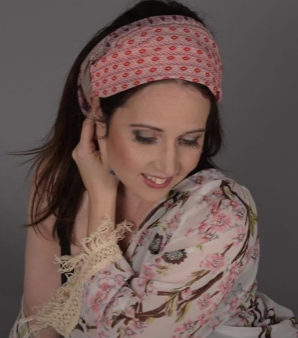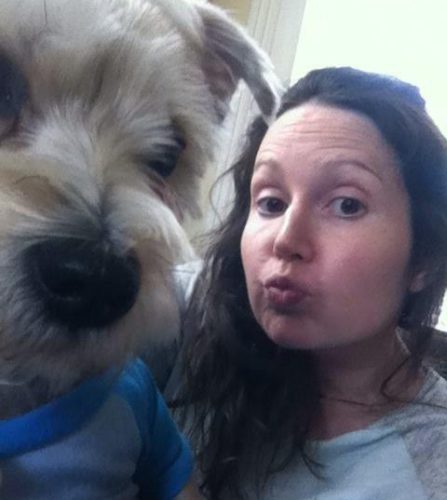 Mary is a former RISE Housing and Support Services resident who recently moved into a brand-new apartment and finds herself living independently after getting some help on her journey into recovery.
Mary is a former RISE Housing and Support Services resident who recently moved into a brand-new apartment and finds herself living independently after getting some help on her journey into recovery.
Mary was a resident at Milestone Manor, a RISE Community Residence, and while living there she was very inspired when a former resident came to the house and shared his story. Mary would like to share her story and says that she hopes to be an inspiration to others as well.
“The staff at Milestone Manor helped me realize that it was okay to medications, talk to a therapist, and attend AA meetings.”
“The most important thing I learned while living at Milestone Manor,” Mary said, “is that I did not need to be embarrassed about my mental health diagnosis. The staff helped me realize that it was okay to take my medications, talk to a therapist, and to attend Alcoholic Anonymous (AA) meetings.” This was an important revelation for Mary, who at the age of 24 first learned she had a mental health condition and she felt like it was the end of the world. “That was a hard time in my life,” Mary shared, “learning I had a mental illness made me feel so ashamed.”
Mary was also learning to live a life of sobriety. “I had started binge drinking when I was 21,” she explained, “when I was 24, I graduated from booze to cocaine.” Throughout those years dinking consumed her life. “I had left college and I was living on my own. My world consisted of drinking, working at a new diner and movie place, going to the gym, and having meaningless relationships with a revolving door of men.” This lifestyle took its toll. Mary had attempted suicide a couple of times. She stopped eating and by the time her friends intervened, she was down to 90 pounds.
“I knew I had a problem. I didn’t just drink while hanging out with friends. I drank to get drunk. I didn’t stop until I hit rock bottom.”
Adding to her shame of being diagnosed with a mental illness was the lack of support from her parents when Mary finally sought treatment. “My parents didn’t acknowledge my mental health diagnosis and they felt that my drinking and doing cocaine was not a problem. They thought that I was just experimenting like any normal 24-year-old,” Mary shared. “But I knew I had a problem. I didn’t drink to get a buzz while hanging out with friends. I drank to get drunk and I didn’t stop until I hit rock bottom. Thankfully, two of my friends convinced me to get help and into a detox center.”
Mary was disappointed but not surprised by her parent’s lack of support. “My parents lived a partying lifestyle,” she explained. “They took my brother and I on cruises, to Orange Lake in Orlando, Florida, and on trips to Atlantic City and Las Vegas. I thought this was a normal lifestyle, traveling, going on cruises, being allowed to hang out in the arcades while my parents gambled and partied with their friends,” Mary said. “My parents adopted my brother and I when I was 13 years old, but we had lived with them since I was 5-years old after our previous foster parents, who we lived with since I was an infant, had to give us up. So, I didn’t realize that most kids didn’t live this type of lifestyle.”
Yet at the same time, her parents restricted her social life. “They were very overprotective,” Mary explained, “I wasn’t allowed to spend much time with friends outside of school activities nor allowed to go over to their houses.” Instead Mary’s parents kept her focus on extra-circular activities like cheerleading, track, and working out at the local gym.
“My friends didn’t let me down and got me back into recovery.”
“Thus, being so naïve, detox terrified me,” Mary exclaimed. “Some of the people there were detoxing from heroin. I didn’t know what heroin was. I was from a small town where I was sheltered. I was scared so I left.” Her friends however didn’t let her down and got her back into detox. From there, with the help of Saratoga County Alcohol and Substance Abuse Services, she went into rehabilitation at St. Peter’s Addiction Recovery Center where through their holistic approach, Mary began her recovery journey. “I know it sounds crazy,” she admitted, “but while I was there, I had to learn how to hold a fork and develop my motor skills again after not eating for over a year.”
Mary’s recovery journey would have been smoother if she had been directed to Milestone Manor directly from rehabilitation; it was only after another stay in a rehabilitation facility and a halfway house in the Bronx, that she made her way back to Saratoga Springs, where she ended up in the woman’s shelter. Mary started attending day treatment at Friendship House where she met Leslie Grossman-Brown, who helped her get into Milestone Manor.
“In PSAP, I learned independent living skills and I was looking forward to living independently in the community again.”
From Milestone Manor, Mary moved to the Progressive Steps Apartment Program (PSAP) where she continued to work on accepting and managing her mental health diagnosis and her substance use recovery. “In the PSAP apartment,” Mary recalls, “I learned independent living skills and I was looking forward to living independently in the community.”
However, Mary became involved in a relationship, so she moved out of the PSAP apartment and into what became a domestic violent situation and she eventually relapsed her sobriety. Fortunately, Mary was able to escape this situation and entered the Wellspring Domestic Violence Shelter and later the Wellspring apartment program. “While in the Wellsprings programs,” Mary shared, “I regained my recovery, and I learned to budget my money and get out of debt. I also renewed the trust I had developed in myself while at Milestone Manor and began to open up to my therapist.”
“I was healthy again and my body, thanks to my yoga and modern dance classes, was in great shape for modeling.”
During this time Mary began going to yoga school through ACCES-VR, became a reiki master, obtained her service dog, and began modeling for art classes at Skidmore College and Adirondack Community College. “I was healthy again and my body, thanks to my yoga and modern dance classes, was in great shape for this type of modeling,” Mary shared. As her confidence grew, she moved out of the Wellspring apartment program into a public housing apartment where she had an aide who helped her to improve her house keeping skills and to cook healthy meals for herself.

Earlier this year, Mary moved into her new apartment in a Saratoga Springs Housing Authority affordable housing complex. “I’ve come such a long way and made so many changes in my life thanks to the services I received from RISE and from Wellspring,” Mary exclaimed. “It’s hard to believe that I get to live in this brand-new apartment. It is so wonderful! Everything is so new! I live here with my service dog, Dolce, who is my best friend. I own my very first washer and dryer, and I have a dishwasher, which is all so exciting!”
Now that COVID-19 restrictions are lifting, Mary is looking forward to going back to modeling for art classes at Skidmore College this fall. She also has an opportunity to audition for talent scouts from Vogue and Victoria Secret. “I’m so excited for this opportunity. I will be going to Manhattan to have test shots taken. If they like my pictures, I will be able to have a portfolio and a social media profile developed for me. If they don’t, then I have my modeling for the college art classes to fall back on. I have nothing to lose and I am hopeful for what I could gain from this experience.”
“Living a life in recovery has led to many wonderful opportunities.”
“I’m so thankful for my life and my recovery,” Mary shares. “Living a life in recovery has enabled me to find so many wonderful opportunities. I’m thankful that Milestone Manor helped me learn to accept my mental health condition and that it is okay to participate in my treatment. I’m thankful that Wellspring helped me learn to budget my money. And I’m thankful for the opportunity to live in this beautiful apartment with my service dog, who provides me much comfort and support.”
Mary continues to work on her recovery by attending virtual Al-Anon and AA meetings and now that COVID-19 restrictions are lifting, socializing with sober peers. RISE is proud to have been a part of Mary’s story. We join her in hoping that her story is an inspiration to others to overcome the stigma surrounding mental health conditions and how someone can live their best life in recovery.
